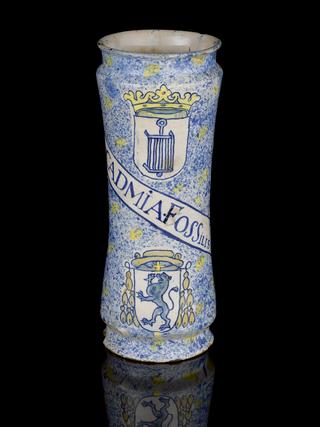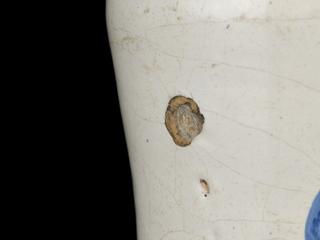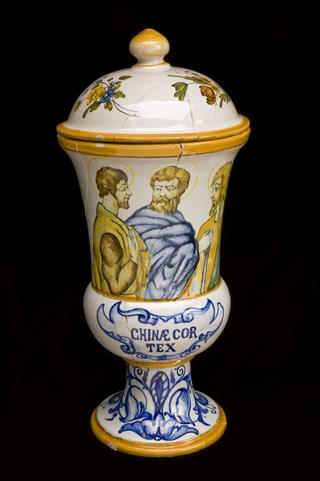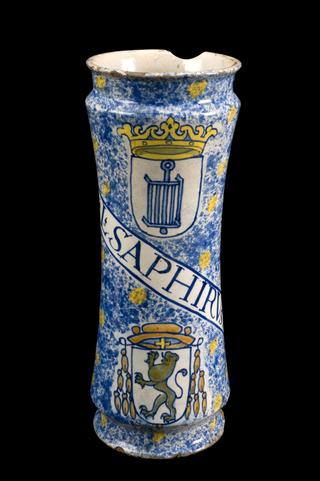

Earthenware votive plaque with maiolica glaze, depicts prison scene, and the Virgin and Child, product of Deruta potteries, Italian, 1660
Painted plaques like this are known as ‘ex votos’, meaning ‘from a vow’ in Latin. Left in a church in gratitude for answered prayers, each one tells a story of a cure or delivery from disaster through the intervention of the Virgin Mary or another Christian saint.
Ex votos can take various forms. This colourful glazed pottery example, known as majolica, is from Deruta in the province of Umbria, Italy, a town renowned for its ceramics since the 1400s. It depicts a woman giving birth while a man (her husband?) watches on from prison. The letters P.G.R. stand for Per Grazia Ricevuta (By Grace Recieved).
Details
- Category:
- Medical Ceramic-ware
- Collection:
- Sir Henry Wellcome's Museum Collection
- Object Number:
- A657835
- Materials:
- earthenware (tin-glazed)
- Measurements:
-
overall: 385 mm x 530 mm x 40 mm,
- type:
- plaques




